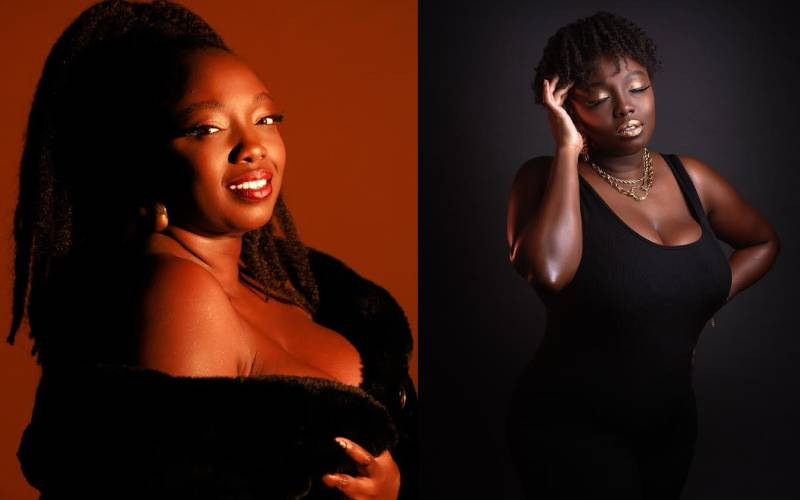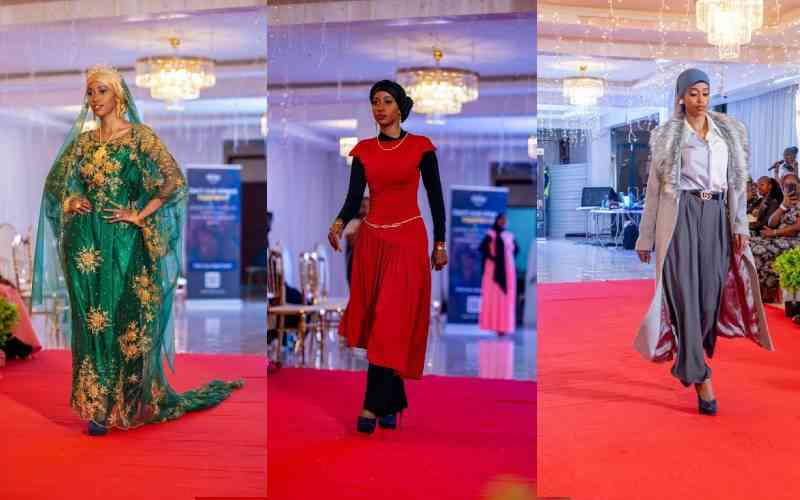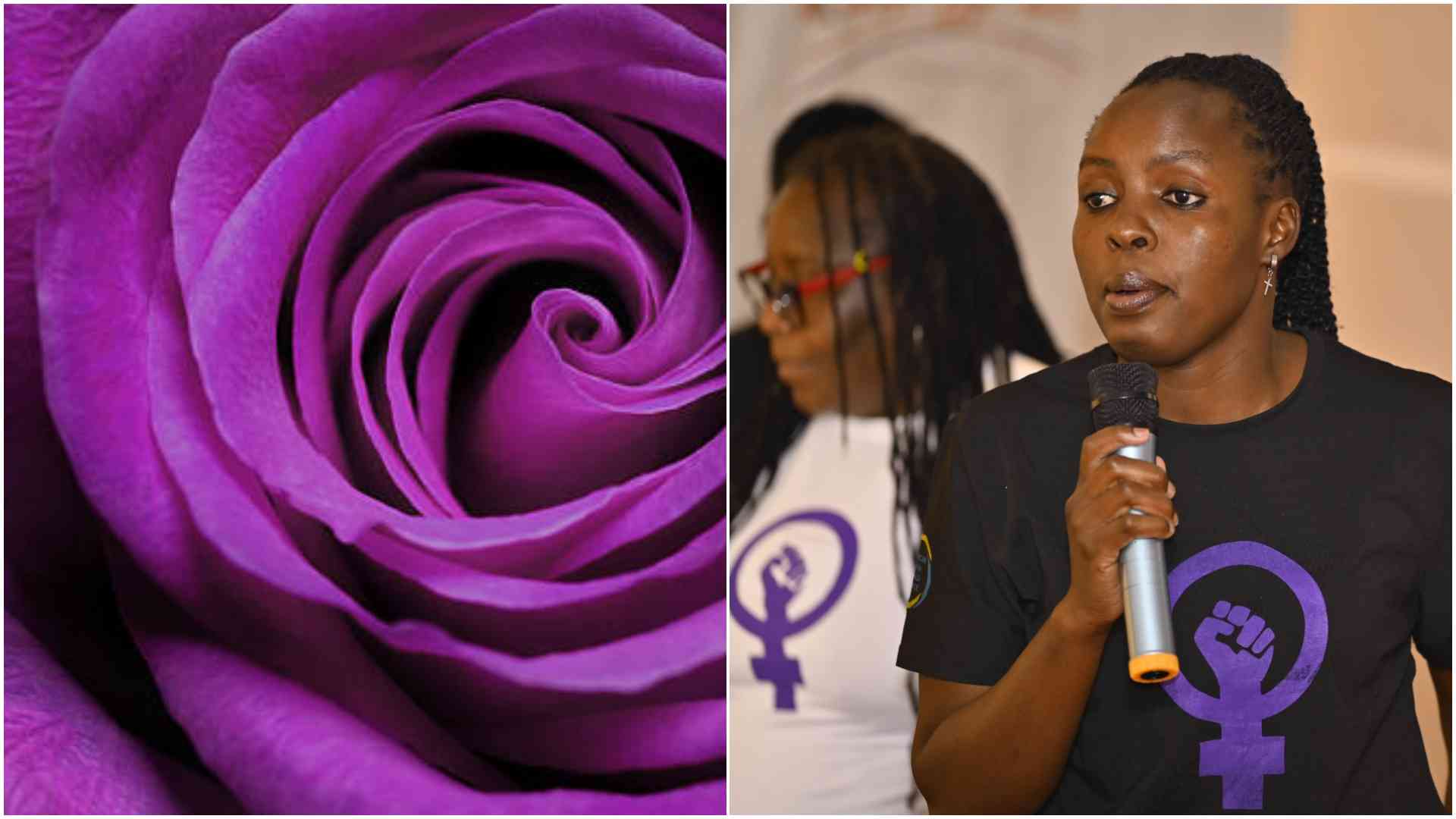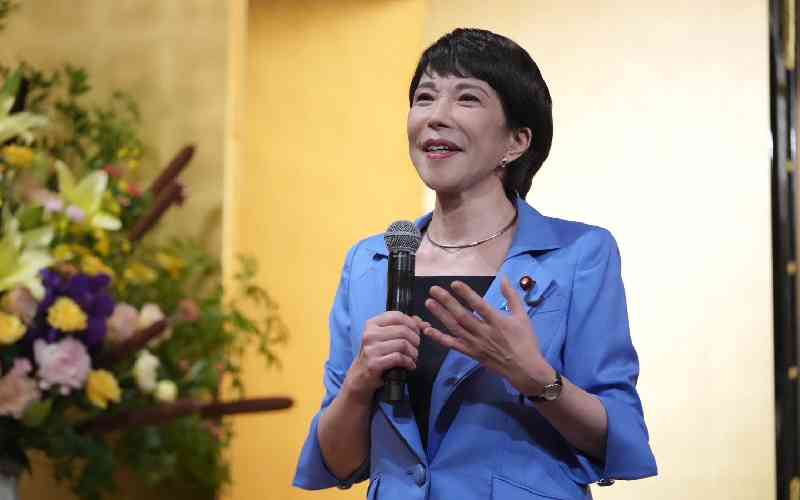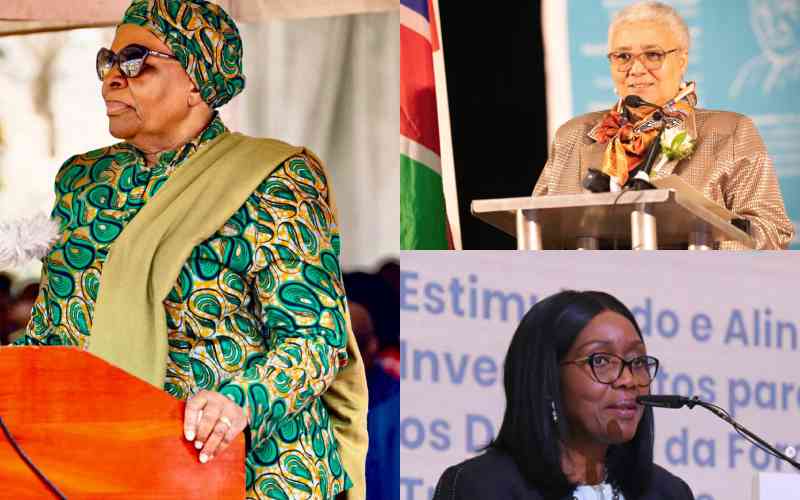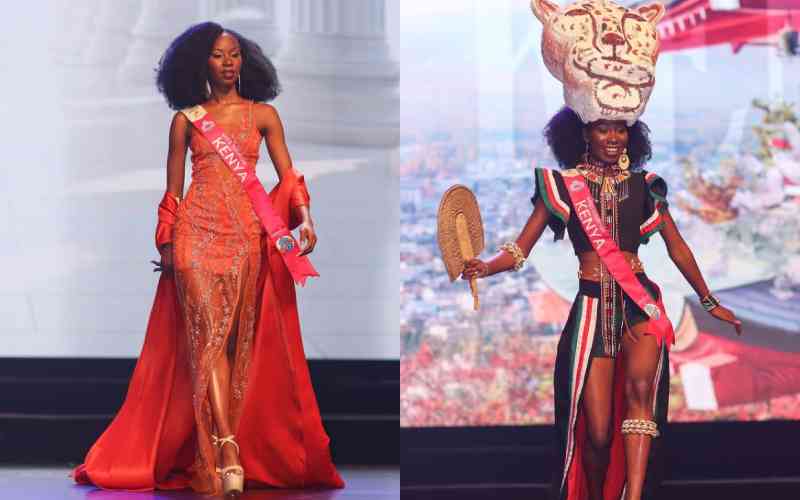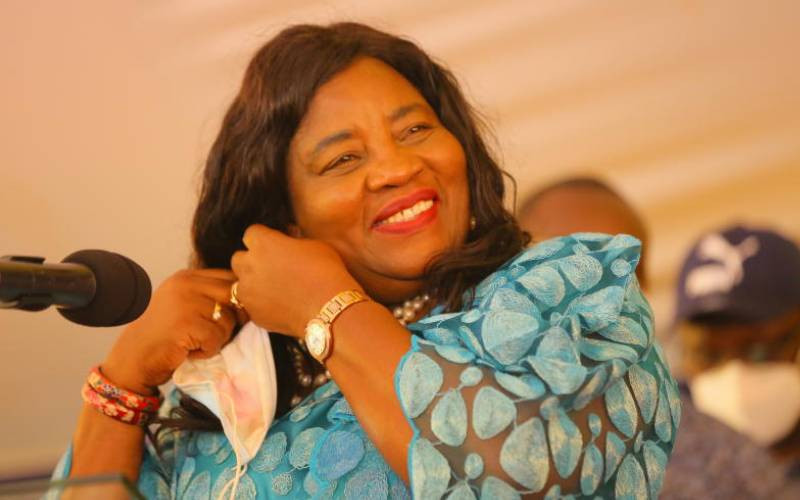Ask any woman her age and you can almost see the wheels in her head turning as she tries to figure out whether to state her real age or fake age, because as society stands, the older a woman gets the more she loses.

That is why turning 50 for a woman is preceded with fear. In fact, for most women the world over, turning 50 is a milestone bombarded with jokes of dried eggs, drooping breasts, wrinkles, thickening waist, knees and back ache; all compounded with empty nest syndrome when children leave for university, work or marriage.
Basically, at 50 and over, women are considered to be withered and old, and put somewhere in the back burner where they are expected to live, look, and dress in a way that does not inspire much of anything except fear from those looking in.
However, there is a new wind of change, a type of coup - perhaps of women who are willing to question and explore, and break the ceiling on rules that have imprisoned women for generations. At the fore front is Susan Wakhungu-Githuku, a multi-faceted professional who is an Executive Leadership & Performance Coach and a HR Consultant, an author and a publisher of over seven books, and a former Fortune 100 Corporate leader.
She is the face behind a new book, “Women Over 50 - Celebrations, Lamentations and Knowingness” that was launched on November 28th at Zen Garden, and is now available in all the major bookshops.
“I woke up one day and found out that I was over 50, and it hit me that I had crossed an interesting milestone. I realised with some perplexity that while the external signals were that I was now finished: ‘old’, a mama, almost a ‘cucu, dani or kukhu’, I felt more alive and more free than ever. I wanted to know what other women in my age category felt - what they were going through, so I asked them,” she explains.
The book gives a unique and candid look at what it means to be a 50 and a woman.
“Across most cultures the narrative is the same – with the piling of years, well magnified in greying or dyed crowns; children flying the coop; ensuing menopause, loss of once-svelte silhouettes and faces sprinkling wrinkles, tomb bells apparently peal to welcome the soon-to-expire.
But, what do the women themselves have to say about this apparent damnation? That is the inspiration behind this book. The book features 50 diverse women from Kenya and around the world talking about how they feel about being over 50. It also includes the nuggets of the wisdom each has collected on the road of life. The stories are deeply insightful and at times very funny,” says Susan.
She continues that society unfailingly tells women of a certain age that their sell by date is past, a fact that she has found to be untrue.
“Over the last several years, we have witnessed an increase in the importance of physical appearance and the adoration of youthfulness. Narcissism is at all-time high and people will go to incredible lengths to avoid ‘growing old’.
While this may be a subjective perspective, I wanted to draw attention to the natural passing of time and to declare that the process of aging is normal and should be embraced with all that comes with it.”
Further, the book does not only cover the good about turning 50, it also delves in the bad and ugly, never shying away from getting down and dirt where necessary.
“There are several career challenges if you have not hit your stride and determined your purpose. On the physical side, if you have not kept active, the physical challenges can be menacing. You are not as fit, as strong or as agile as you once were.
Your figure that used to carry clothes well struggles. The hot flushes that spew forth hot sweat from nowhere can irritate. Your hair line recedes, the hair thins and begins to change colour and there can be medical challenges. Fifties is not for ‘sissies’. These are the negatives, referred to in the book as ‘Lamentations’, but there are a number of tremendous positives that I personally had not expected.”
Susan further states that the book has something for everyone, even for men and women under 50, and hopes it will be a declaration that the process of aging is normal and should be embraced with all that comes with it.
Additionally, she explains that writing is nothing new to her but a passion that has always followed her for most of her life.
“I studied English Literature for my A-Levels and at University I studied Economics and Psychology but took courses in Journalism as I had an enduring fascination with the subject. As a teenager I used to report on tennis results for the Kenya Times newspaper, sometimes minutes after playing my own matches.
Later as an HR leader, I contributed columns on management and leadership to the East African newspaper. When I left the Coca-Cola Company to venture into entrepreneurship in 2009, I decided that I should try a book for the fun of it. This led to our first book: Life Journeys: Seeking Destiny.
And later, Life Journeys: Scaling Heights, Life Journeys Nuggets: Musings On Life, Life Journeys Nuggets: Musings On Kenya, Aspirations Of A Generation, Where Is Kenya 50 Years Since Independence? - 50 Voices Speak!, and which was followed by Wisdom Of The Elders - Personal Reflections Of Over 70 Kenyans Who Have Lived Through Changing Times.”
However, the idea to publish came later for Susan. “The publishers she spoke to, mostly abroad, were keen that her stories should be told in a particular way. As she believed that the perspective she wanted to present was important as was the packaging, I decided to establish Footprints Press which seeks to showcase the story of the contemporary African in a new and different way.”
Apart from writing, Susan is the Director at Footprints Press and also the Managing Director of Human Performance Dynamics Africa, a boutique Organizational Development & Human Resources consulting firm that offers innovative “21st century” organizational and people solutions.
Away from her work Susan has two grown children and recently lost her husband to pancreatic cancer.
“My late husband was Tony Githuku nicknamed ‘TG’. We were kindred spirits in that we had similar life values and we both enjoyed competitive sports. He swam for Kenya and played rugby too and later golf became a sweet addiction.
We first met at the third All Africa Games in Algeria in 1978 and started dating in 1982. We married in 1986. He passed away last year to pancreatic cancer. I miss everything about him.” she says.
“My biggest regret is that I will not grow old with him but I am hopeful about the future. My advice to anyone who has lost a loved one is that the void after the loss of a loved one remains forever.
So finding ways to accept the permanence of the loss and deliberately adjusting to the new normal by seeking whatever help one can get is critical. Secondly, there are always good days and bad day, and simply allowing oneself to feel and to be is important,” she says.
In closing, her future plans include using her writing to change society perceptions, bringing about positive change, and being at peace with the universe.
 The Standard Group Plc is a multi-media organization with investments in media
platforms spanning newspaper print
operations, television, radio broadcasting, digital and online services. The
Standard Group is recognized as a
leading multi-media house in Kenya with a key influence in matters of national
and international interest.
The Standard Group Plc is a multi-media organization with investments in media
platforms spanning newspaper print
operations, television, radio broadcasting, digital and online services. The
Standard Group is recognized as a
leading multi-media house in Kenya with a key influence in matters of national
and international interest.


